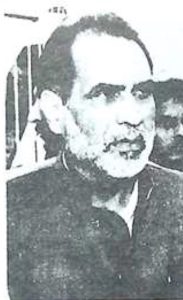
NEW DELHI: The 117-day old Chandra Shekhar government suddenly resigned March 6 recommending the dissolution of the Parliament and fresh general elections plunging the country into a grave political and constitutional Within minutes of the dramatic announcement of his resignation on the floor of Lok Sabha the 63-year-old Chandra Shekhar drove to the Rashtrapati Bhavan to tender the resignation of his 29member council of ministers.
His resignation was accepted by the president R. Venkataraman who asked him to continue in office till alternative arrangements were made. But a decision regarding dissolution of the Lok Sabha will be taken separately a Rashtrapati Bhavan communique said.
A mid-term poll appeared inevitable as the Lok Sabha adjourned sine die fate March 12 concluding essential legislative business despite a bid by the deputy prime minister Mr Devi Lal to brew a revolt on the issue of fresh elections.
What I foresee is that elections are inevitable. If there is a way out it is the president who may be aware of it said Prime Minister Chandra Shekhar who earlier in the day had a 30 minute meeting with President R Venkataraman.
He had received no proposal for a coalition government officially from any quarter and if there were indications of support from the Congress-I we will see Chandra Shekhar said at Chittorgarh declining to react to newspaper reports.
Meanwhile hectic patch up efforts have not yielded any results so far.
Chandra Shekhar chose to step down after a break with the Congress-I which was supporting his minority Janata Dal (S) government on the issue of surveillance at the residence of Rajiv Gandhi the Congress-I President.
Venkataraman would now have to decide whether to accept the advice to hold mid-term elections with Chandra Shekhar as caretaker prime minister or try for an alternative government by other parties.
Chandra Shekhar told reporters that president had said he would take a decision on dissolution with 24 hours but political observers pointed out that the president had no easy option.
With the Congress-I continuing to boycott the proceedings for the second successive day and the opposition pressing for a vote on the president’s address Mr Chandra Shekhar decided to step down rather than compromise with the Congress-l.
In a surprise announcement towards the end of his reply to the debate on the address he said I will just now go to the Rashtrapati Bhavan and tender resignation of my government.
Later Rajiv Gandhi claimed that Chandra Shekhar’s decision to resign was unilateral and his party had not withdrawn support to the government.
He said his party was “very responsible” and would not allow the government to face any constitutional crisis.
Gandhi described as “hypothetical” a question if the Congress (I) would stake its claim to form a Government by the National Front and left parties and another by the BJP.
Earlier during the debate on the president’s address the opposition led by L K Advani assured the government of full cooperation to tide over the constitutional crisis created by the Congress-I.
Leaders of the parties who spoke before the Prime Minister Promised cooperation to ensure passage of the interim budget as well as the budget of four states under president’s rule.
Chandra Shekhar told reporters at his residence that his party would not support the Congress even if it staked its claim to form a government and felt there was no option other than fresh polis.
Parliament March 10 cleared the decks for the president Mr R Venkatraman to end the political uncertainty with the passage of the interim general and railway budgets to meet the government expenditure for the next four months
The relevant apocopation bills were passed in Parliament in a “record time besides clearing several money bills including 199192 budgets for four states and one union territory
Parliament also adopted the finance bill to continue existing level of direct and indirect taxes in the fiscal 1991-92. The bill also provides for continuing auxiliary customs and excise duties beyond March 31 this year.
While the Lok Sabha passed the bills without discussion the Rajya Sabha returned them after a brief discussion.
The 75th constitution amendment bill extending president’s rule in Punjab for six months beyond May 11 this year and extension of President’s rule in Assam were the other important business the Lok Sabha transacted during the brief sitting.
The voting on the constitution amendment bill which was carried by 321 in favor and four against was preceded by a walk out by National Front Akali Dal and Bahujan Samaj Party and some independents.
The 1991-92 budgets of Tamil Nadu Assam Punjab Jammu and Kashmir and Pondicherry needed parliamentary approval as they are under president’s rule.
Article extracted from this publication >> March 15, 1991